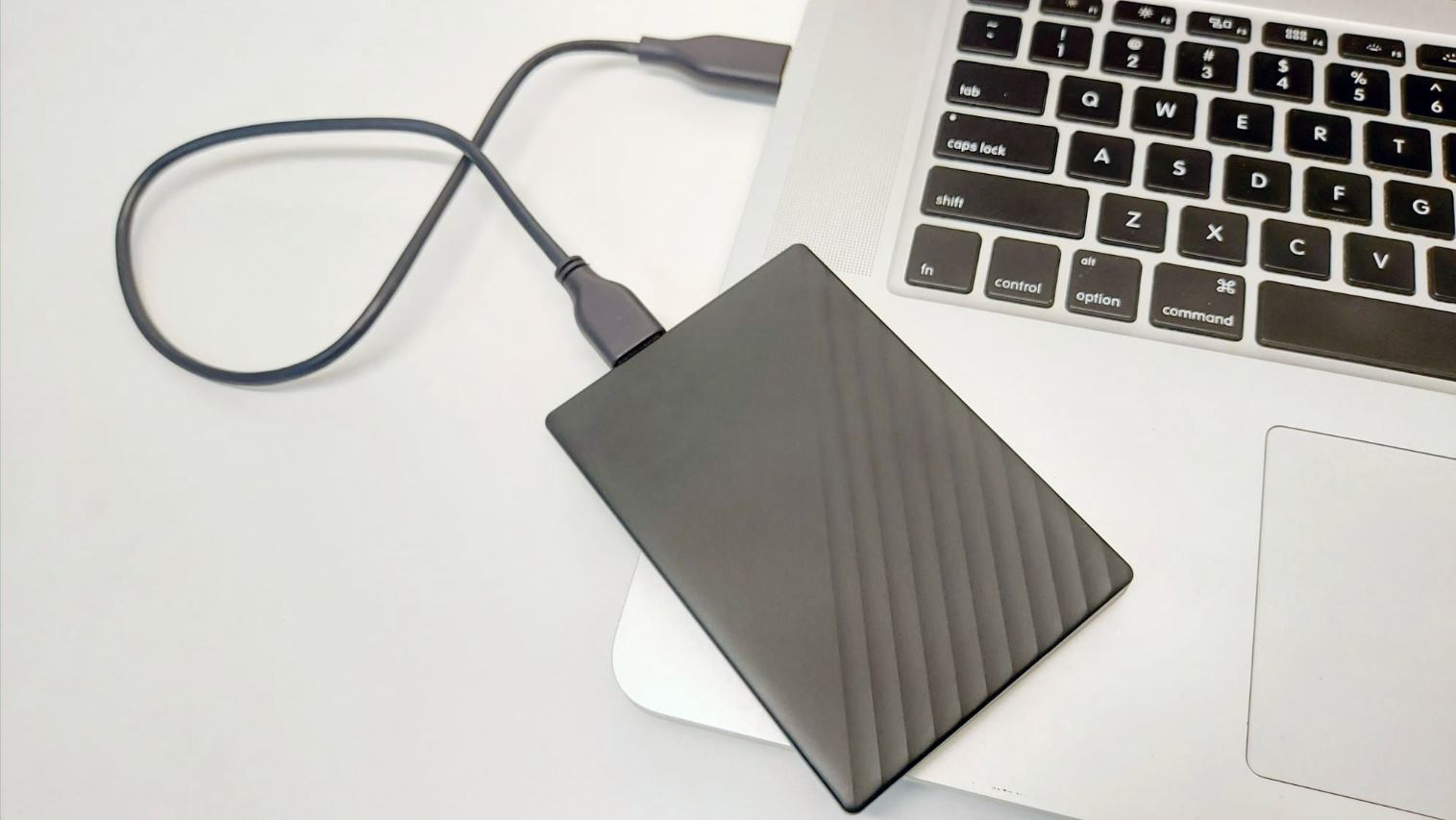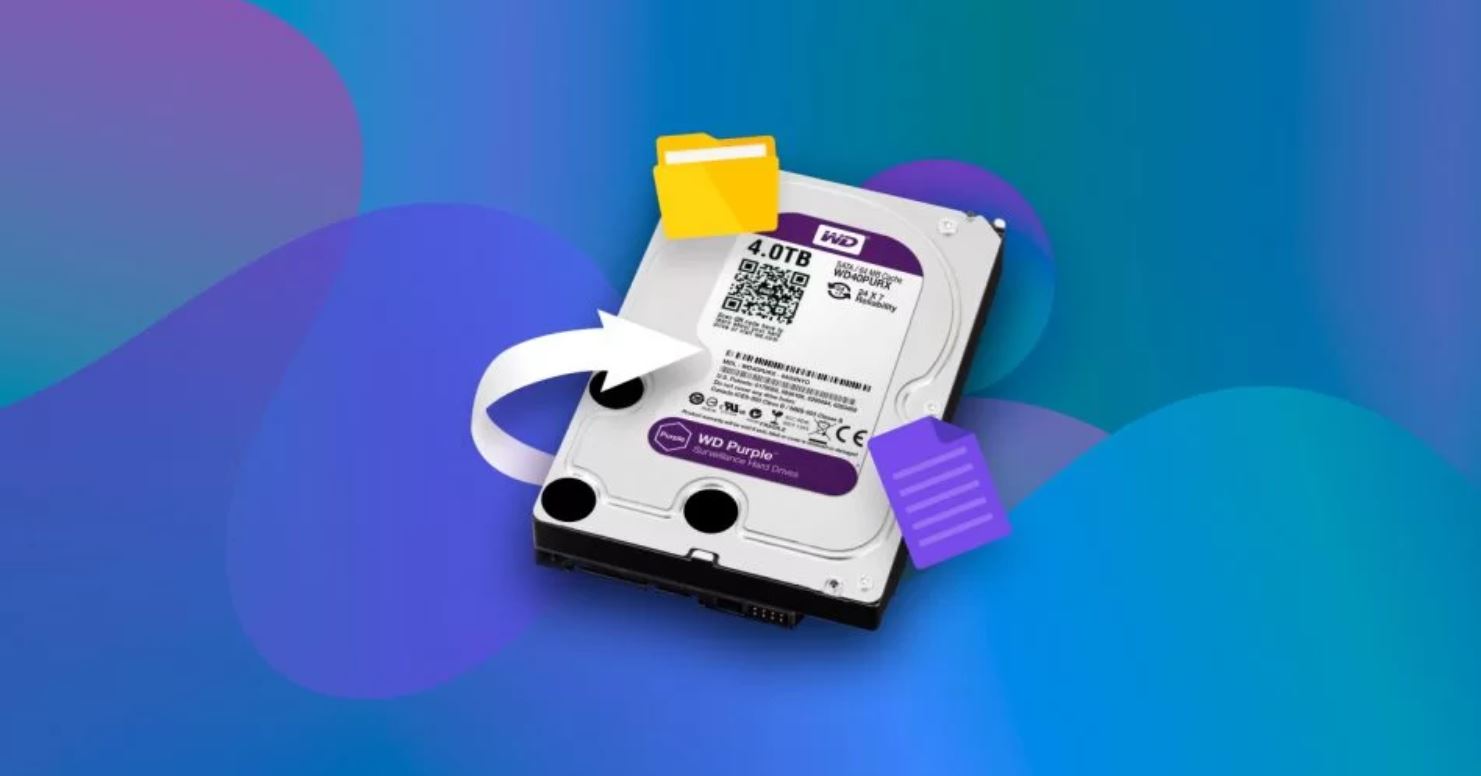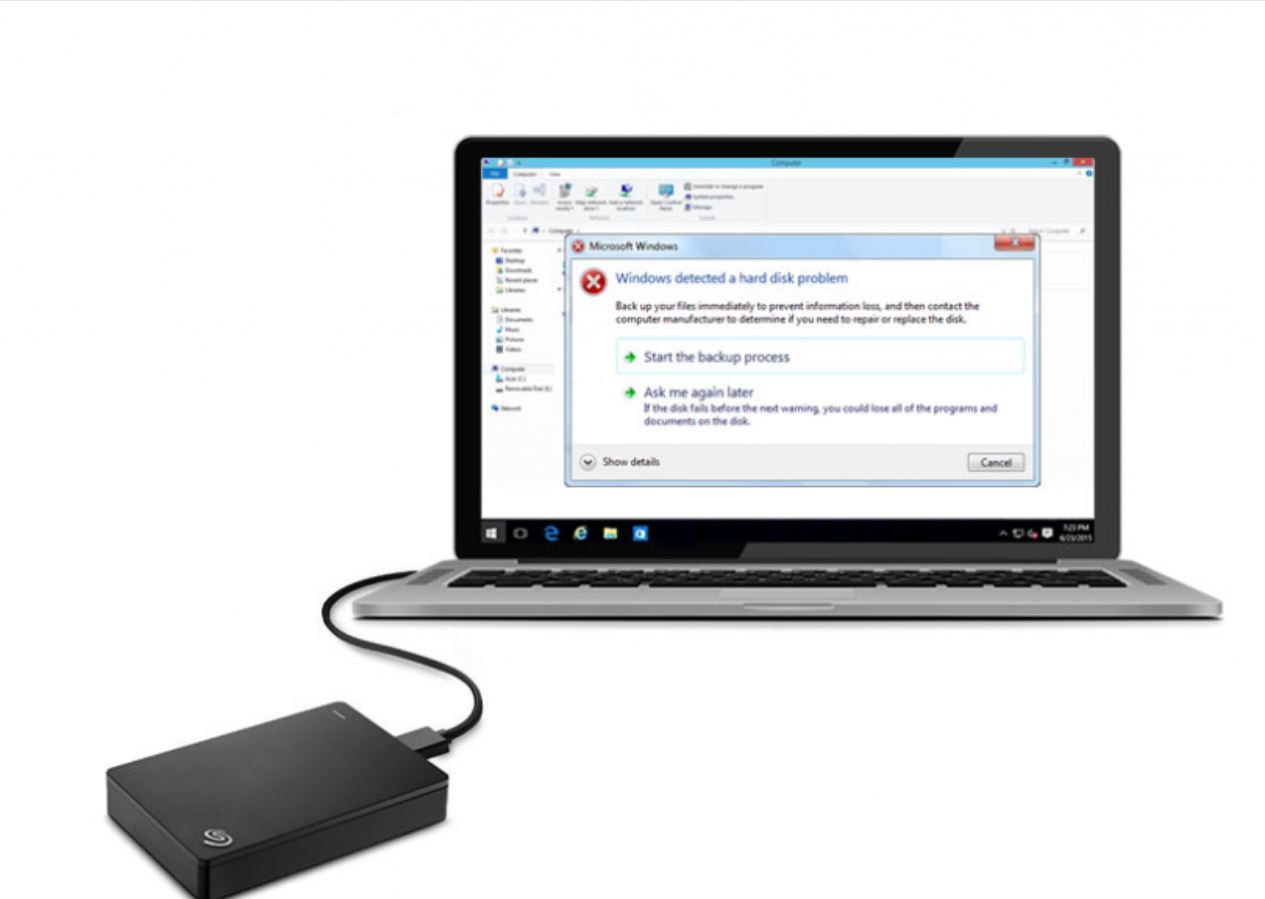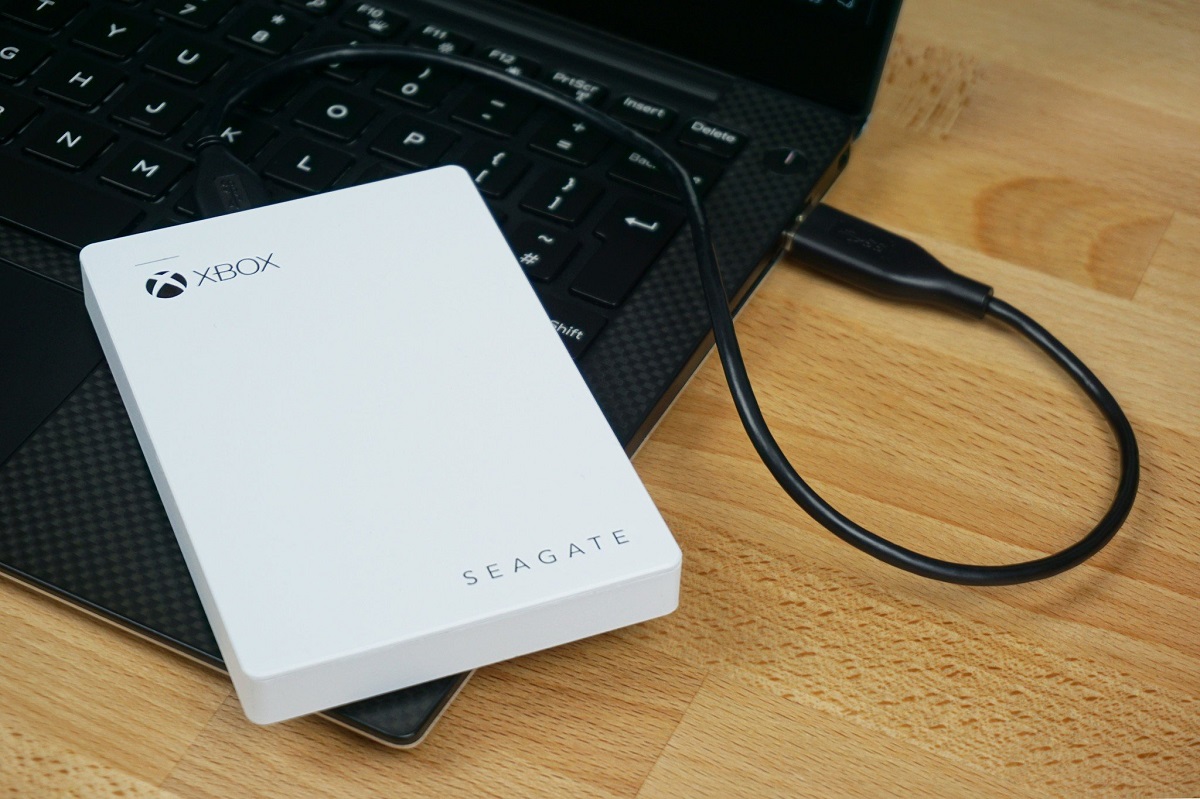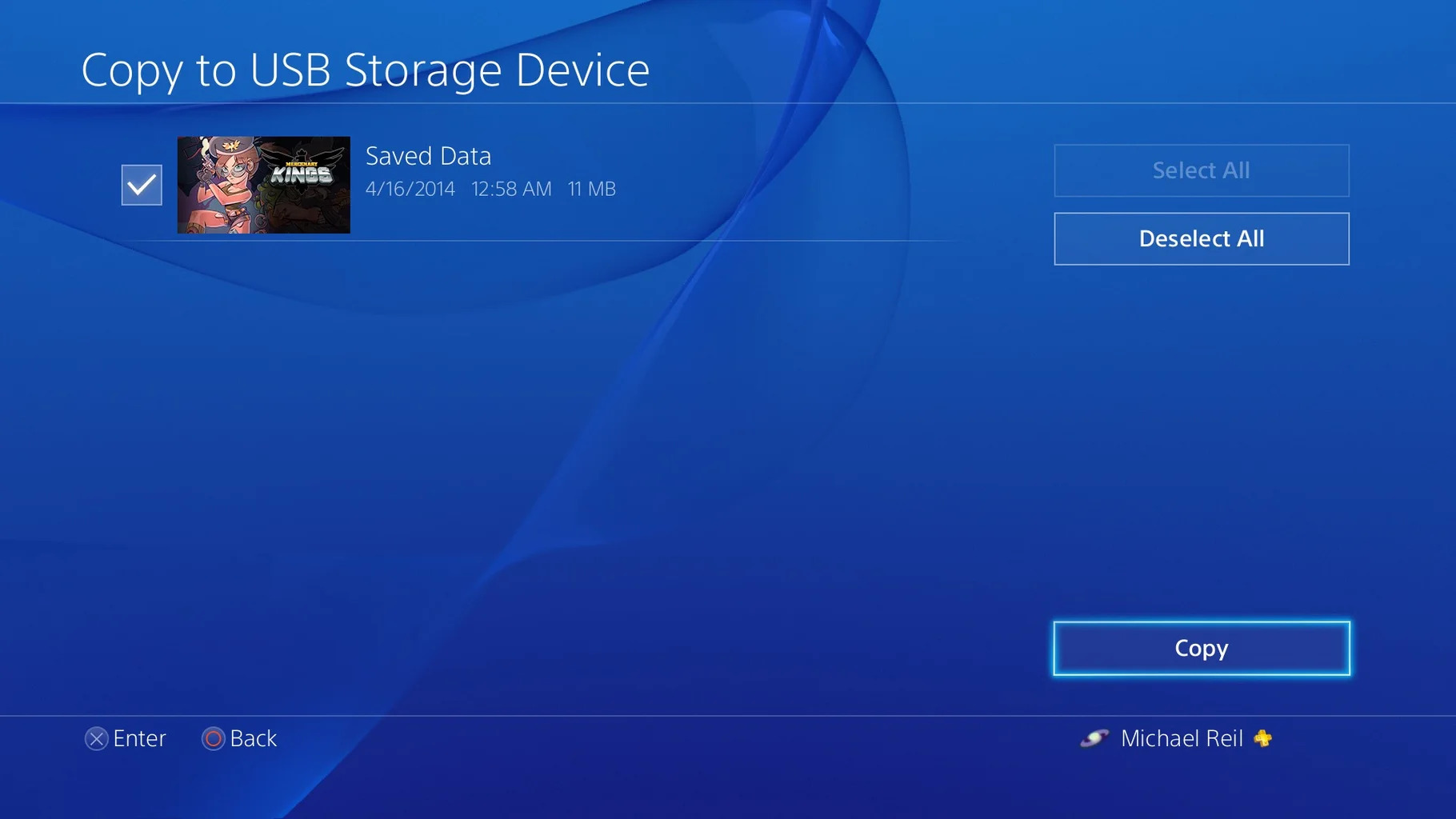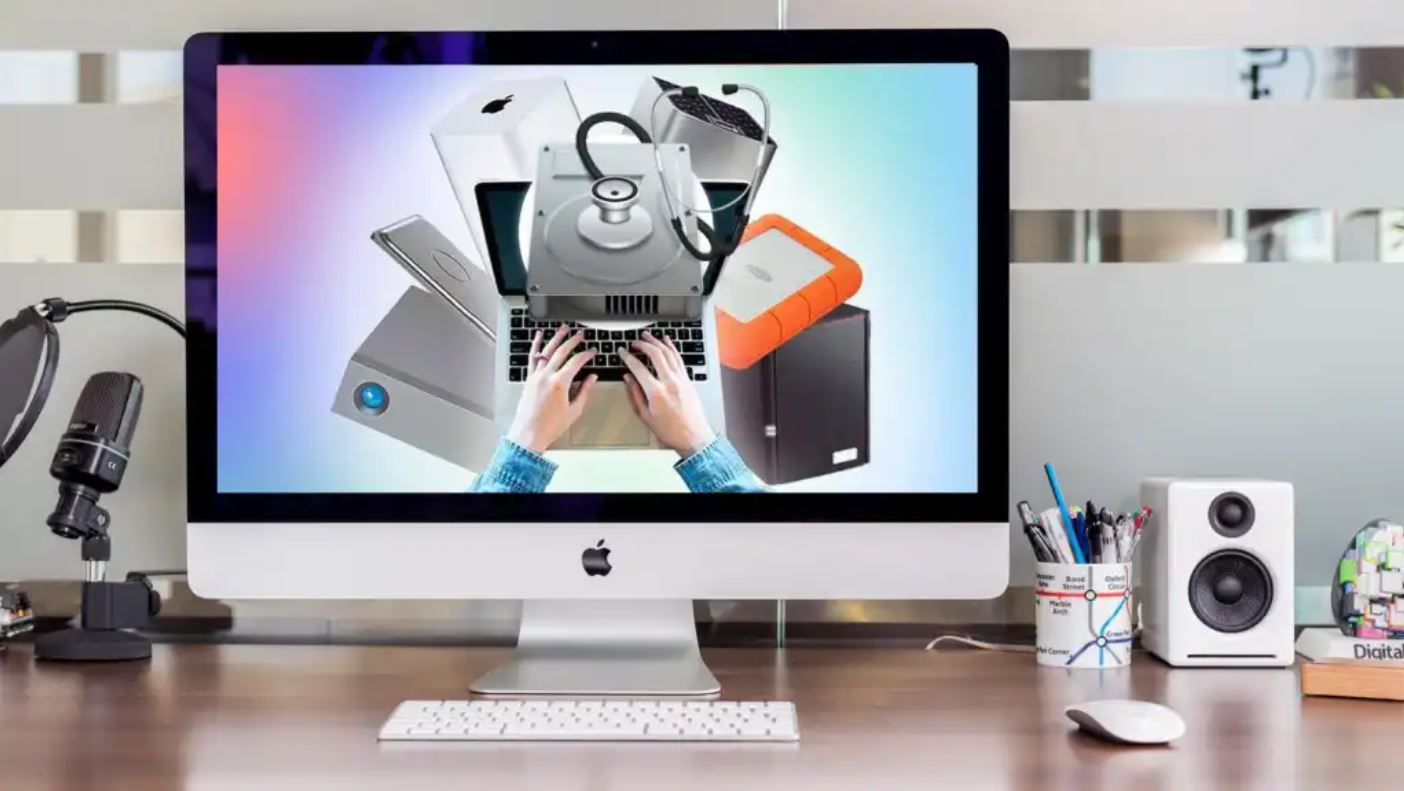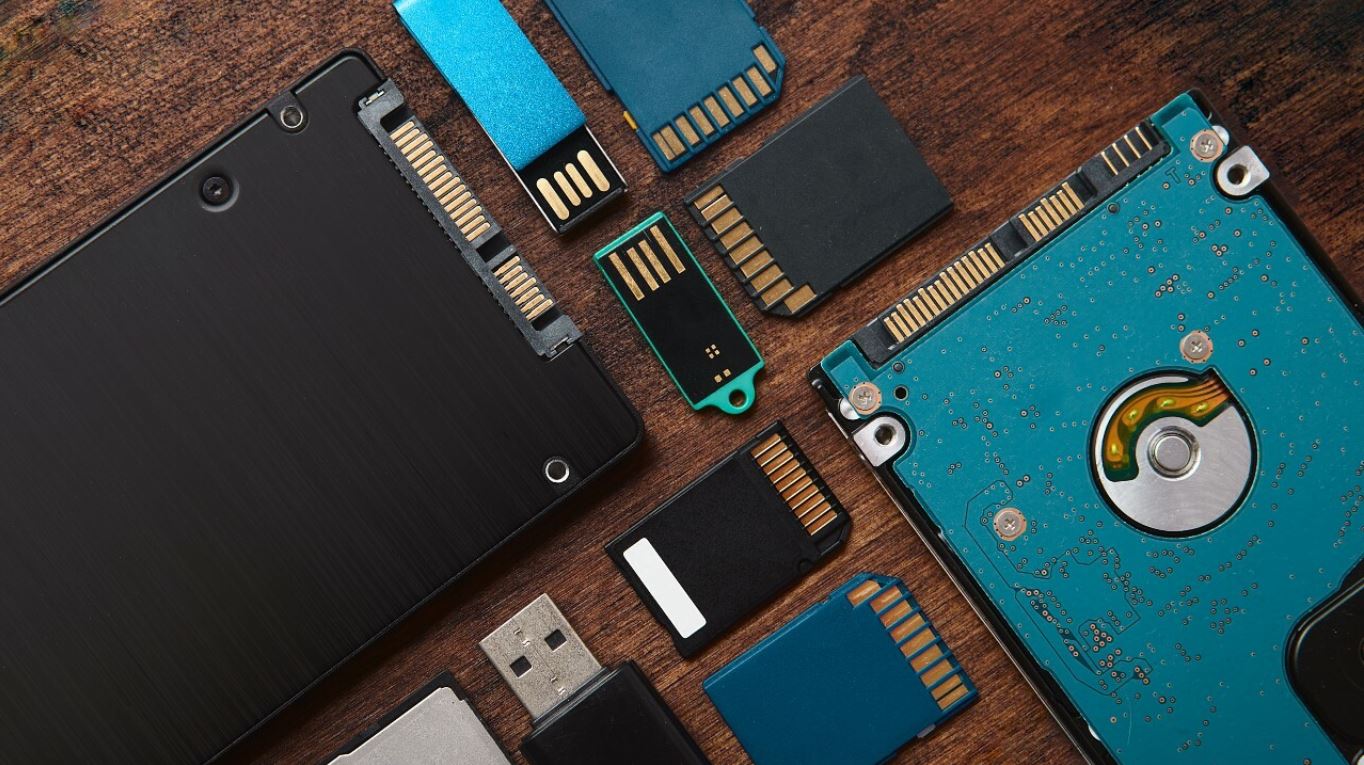Common Reasons for External Hard Drive Disconnecting
An external hard drive is a convenient storage device that allows you to expand your computer’s storage capacity and easily access files. However, it can be frustrating when your external hard drive keeps disconnecting. This issue can disrupt your work and potentially lead to data loss. Understanding the common reasons behind this problem can help you troubleshoot and resolve the issue effectively.
One of the common causes of an external hard drive disconnecting is a faulty or damaged USB cable. A damaged cable can result in unstable connections, causing the drive to disconnect intermittently. Inspecting and replacing the USB cable can often resolve this issue.
Another potential reason is an insufficient power supply. If your external hard drive is not receiving enough power, it may disconnect frequently. This can be due to a weak power source or using multiple power-hungry devices simultaneously. Connecting the drive to a different power source or using a powered USB hub can help alleviate this issue.
A corrupted USB driver can also lead to frequent disconnections. The USB driver is responsible for facilitating communication between the external drive and your computer. Updating or reinstalling the USB driver can sometimes fix the problem.
Incorrect power management settings can cause the external hard drive to disconnect. The computer’s power settings may be set to conserve power by turning off USB devices when not in use. Adjusting the power management settings to maintain the connection can resolve this issue.
A faulty USB port on your computer can also contribute to frequent disconnections. To check if this is the cause, try connecting the external hard drive to a different USB port. If it remains stable, you may need to repair or replace the faulty port.
Software conflicts can disrupt the connection between the external drive and your computer. Certain programs or applications may interfere with the USB communication, leading to disconnections. Closing unnecessary programs or running a malware scan can help identify and resolve these conflicts.
Physical damage to the external hard drive itself can cause it to disconnect. If the drive has been dropped or subjected to impact, it may have internal components that are damaged or loose. In such cases, professional assistance may be required to repair or recover the data.
Overheating can also cause the external hard drive to disconnect. If the drive gets too hot, it may automatically shut down or disconnect to prevent damage. Ensure proper ventilation and avoid placing the drive in areas with excessive heat to prevent overheating issues.
Lastly, operating system issues can contribute to frequent disconnections. Outdated or incompatible operating systems may not properly recognize or support the external hard drive. Updating the operating system or seeking compatibility fixes from the manufacturer can resolve this problem.
By understanding these common reasons for an external hard drive disconnecting, you can troubleshoot the issue effectively and ensure reliable and uninterrupted access to your data.
Faulty or Damaged USB Cable
A faulty or damaged USB cable is one of the common culprits behind an external hard drive frequently disconnecting. USB cables are essential for establishing a stable connection between the external drive and your computer. When the USB cable is defective, it can lead to intermittent disconnections, causing frustration and potential data loss.
There are several reasons why a USB cable may become faulty or damaged. Over time, constant twisting, bending, or tugging can wear out the internal wires, resulting in poor connectivity. Additionally, accidental pulls or drops can cause physical damage to the cable, weakening its overall integrity.
To determine if a faulty or damaged USB cable is the cause of the disconnection issue, there are a few troubleshooting steps you can take. Firstly, try using a different USB cable to connect your external hard drive. If the disconnection problem resolves, it confirms that the original cable was indeed faulty.
Inspect the USB cable for any visible signs of damage, such as frayed wires, bent connectors, or loose connections. If you notice any of these issues, it’s best to replace the cable. Even minor damage can have a significant impact on the stability of the connection.
When purchasing a new USB cable, ensure that it is compatible with your external hard drive and computer. Consider investing in a high-quality, durable cable that is designed to withstand regular use and minimize the risk of future damage.
Proper handling and care can also help prevent USB cable damage. Avoid bending or forcefully pulling the cable, as this can strain the internal wires. Instead, grasp the connectors firmly and disconnect them gently. When not in use, store the USB cable in a safe and secure location, away from potential hazards.
Regularly inspecting and maintaining your USB cables can help prolong their lifespan and prevent connectivity issues. If you notice any signs of wear or damage, promptly replace the cable to avoid further complications.
In summary, a faulty or damaged USB cable can cause an external hard drive to frequently disconnect. By troubleshooting and replacing the cable if necessary, you can restore a stable connection and ensure uninterrupted access to your data.
Insufficient Power Supply
One of the common reasons why an external hard drive may keep disconnecting is an insufficient power supply. External hard drives require a sufficient amount of power to operate reliably and maintain a stable connection with the computer. When the power supply is inadequate, it can result in frequent disconnections, disrupting your workflow and potentially causing data loss.
There are a few possible causes for an external hard drive not receiving enough power. One common reason is using an underpowered USB port on your computer. USB ports can differ in power output, with some providing higher power levels than others. Connecting the drive to a different USB port, preferably one that is specifically designed for high-power devices, may resolve the issue.
Another factor to consider is the total power load on your computer. If you are using multiple power-hungry devices simultaneously, such as printers, scanners, or other external hard drives, the combined power draw may surpass the capacity of your computer’s power supply. This can result in insufficient power being allocated to the external hard drive, leading to disconnections. Connecting the drive to a separate power source, such as a powered USB hub or an external power adapter, can help provide the necessary power and stabilize the connection.
In some cases, a weak power source can also contribute to the problem. If you are using a laptop or a computer with a low-wattage power supply, it may struggle to supply enough power to all connected devices. Upgrading to a higher-wattage power supply or using a dedicated external power source for the drive can help alleviate this issue.
It’s important to note that some external hard drives come with their own dedicated power supply. If you are using such a drive, ensure that it is properly connected and receiving power. A loose connection or a faulty power brick can also result in insufficient power supply and frequent disconnections.
To diagnose if an insufficient power supply is causing the disconnection problem, you can try connecting the external hard drive to a different power source or using a powered USB hub. If the drive remains stable and the disconnections cease, it confirms that the power supply was indeed the issue.
By ensuring a reliable and adequate power supply for your external hard drive, you can minimize the risk of frequent disconnections and enjoy uninterrupted access to your data.
Corrupted USB Driver
A corrupted USB driver can be a common cause of an external hard drive frequently disconnecting from your computer. The USB driver is responsible for facilitating communication between your computer’s operating system and the external drive. When the USB driver becomes corrupted or outdated, it can result in unstable connections, leading to repetitive disconnections.
There are several reasons why a USB driver may become corrupted. System updates, software conflicts, or malware infections can all contribute to driver issues. Additionally, improper installation or removal of USB devices can also lead to driver corruption.
To determine if a corrupted USB driver is causing the disconnection problem, you can follow a few troubleshooting steps. First, you can try updating the USB driver to the latest version. You can typically find the appropriate driver on the manufacturer’s website or through your computer’s Device Manager. Updating the driver can fix any bugs or compatibility issues that may be causing the disconnections.
If updating the driver does not resolve the issue, you can try uninstalling and reinstalling the USB driver. This process will remove any corrupted files associated with the driver and install a fresh copy. To uninstall the driver, go to the Device Manager, locate the USB driver, right-click on it, and select “Uninstall.” Once uninstalled, restart your computer, and the driver should automatically be reinstalled.
In some cases, you may need to completely remove all USB drivers from your computer and perform a clean installation. This process ensures that any hidden or problematic drivers are removed, allowing for a clean slate. To do this, you can use specialized driver removal tools or follow detailed instructions provided by your operating system’s support resources.
If manually updating or reinstalling the USB driver does not resolve the issue, you can also try using third-party driver update software. These programs scan your computer, detect any outdated or corrupted drivers, and automatically download and install the latest versions. However, exercise caution when using such software and ensure that you download from reputable sources.
It’s important to note that if you are uncomfortable or unfamiliar with driver installation or troubleshooting, seeking professional assistance is recommended.
By ensuring that your USB driver is up-to-date and not corrupted, you can resolve connectivity issues and prevent frequent disconnections of your external hard drive.
Incorrect Power Management Settings
Incorrect power management settings can often be the culprit behind an external hard drive frequently disconnecting. Power management settings control how your computer handles power consumption and may include options to conserve energy by turning off USB devices when they are not in use. However, these settings can sometimes interfere with the stable connection of your external hard drive and lead to disconnections.
When power management settings are misconfigured, your computer may mistakenly turn off the USB port that your external hard drive is connected to, causing it to disconnect. This can be particularly common when the drive is idle for extended periods or not actively being accessed.
To check if incorrect power management settings are responsible for the disconnection issue, you can modify the power settings in your computer’s operating system. Here’s how to do it:
- Open the Control Panel or Settings on your computer.
- Go to Power Options or System Preferences.
- Locate the power plan or power management settings.
- Look for USB settings or USB selective suspend settings.
- Disable any options that allow the computer to turn off USB devices to save power.
By disabling these power-saving options, you ensure that the USB port that your external hard drive is connected to remains powered and prevents frequent disconnections.
Additionally, you can adjust the power settings specifically for the USB port that your external hard drive is connected to. Some operating systems allow you to customize power management settings for individual USB ports. By setting the power management options for that particular port to “always on” or “maximum performance,” you can ensure a stable connection for your external hard drive.
It’s worth noting that modifying power management settings may slightly affect your overall power consumption. However, the impact is minimal compared to the inconvenience and potential data loss caused by frequent disconnections of your external hard drive.
If modifying power management settings doesn’t resolve the disconnection issue, you can also try updating your computer’s BIOS firmware and chipset drivers. Outdated firmware or drivers can sometimes cause power-related issues. Check your computer manufacturer’s website for any available updates and follow their recommended installation instructions.
By adjusting power management settings and ensuring they are correctly configured, you can prevent frequent disconnections of your external hard drive and maintain uninterrupted access to your important data.
Faulty USB Port
A faulty USB port on your computer can be a common reason why an external hard drive keeps disconnecting. USB ports are essential for establishing a stable connection between your computer and the external drive. When a USB port becomes faulty, it can result in intermittent disconnections, causing frustration and potential data loss.
Several factors can contribute to a USB port becoming faulty. Wear and tear from frequent plugging and unplugging of USB devices can loosen the connection and affect the stability of the port. Additionally, physical damage due to accidental drops or mishandling can also result in a faulty port.
To determine if a faulty USB port is the cause of the disconnection problem, you can try connecting the external hard drive to a different USB port on your computer. If the disconnections cease and the drive remains stable, it confirms that the original USB port was indeed faulty.
If you suspect a faulty USB port, there are a few potential solutions you can try:
- Inspect the USB port for any visible physical damage, such as bent or misaligned connectors. If you notice any issues, it’s best to consult a professional technician to repair or replace the port.
- Use compressed air to clean out any dust or debris that may be affecting the connection. Sometimes, dust particles can accumulate in the USB port and cause poor connectivity.
- Try a different USB cable or adapter. In some cases, the issue may not be with the USB port itself, but with the cable or adapter being used. Switching to a new cable or adapter can help determine if the problem lies there.
- If using a desktop computer, consider installing an expansion card with additional USB ports. This can provide you with extra ports and bypass any faulty ones on the motherboard.
If none of these solutions resolve the issue and the faulty USB port is integral to your computer, consulting a professional technician or contacting the computer manufacturer may be necessary.
Preventing a faulty USB port from occurring in the future involves proper handling and care. Avoid applying excessive force when plugging or unplugging USB devices, as this can damage the port. Additionally, always store and transport your external hard drives with caution to avoid accidental drops or impacts.
By addressing and resolving a faulty USB port, you can ensure a stable and reliable connection for your external hard drive, minimizing the frequency of disconnections and potential data loss.
Software Conflicts
Software conflicts can be a common cause of an external hard drive frequently disconnecting from your computer. Certain programs or applications running on your system can interfere with the USB communication, leading to unstable connections and repetitive disconnections.
When multiple software applications are accessing or utilizing the USB ports simultaneously, conflicts can arise. These conflicts may occur due to incompatible drivers, background processes, or resource allocation issues.
To troubleshoot software conflicts, you can take the following steps:
- Close unnecessary programs: Exit any unnecessary applications running in the background. Some programs may have processes that constantly access the USB ports, causing conflicts with the external hard drive. By closing these applications, you can minimize potential disruptions to the USB connection.
- Perform a malware scan: Malware or viruses can also cause software conflicts and disrupt USB communication. Scan your computer using a reliable antivirus program to identify and remove any malicious software that may be interfering with your external hard drive.
- Update drivers and software: Ensure that your computer’s USB drivers, as well as any relevant applications or software, are up to date. Outdated drivers or software can cause compatibility issues and lead to disconnection problems. Check the manufacturer’s website for the latest updates and follow their instructions to install them.
- Disable startup items: Some applications have processes that start automatically when your computer boots up. These processes can potentially conflict with the external hard drive. Disable any unnecessary startup items via the Task Manager or System Configuration utility.
- Use a different USB port: Try connecting your external hard drive to a different USB port on your computer. Some USB ports may have better compatibility with specific software or drivers, and switching ports can help resolve software-related conflicts.
If you suspect that a particular program or driver is causing the conflict, you can try temporarily uninstalling or disabling it to see if the disconnection issue resolves. However, exercise caution when making changes to your system software, and ensure that you have a backup of important data.
In some cases, more complex software conflicts may require additional troubleshooting or even expert assistance. If you are unable to identify the specific cause of the conflict or if the issue persists, it may be beneficial to seek the help of a professional technician or software support.
By addressing and resolving software conflicts, you can ensure a stable and uninterrupted connection with your external hard drive, minimizing frequent disconnections and potential data loss.
Physical Damage to the External Hard Drive
Physical damage to the external hard drive itself can be a common reason for frequent disconnections. External hard drives are susceptible to damage due to their portable nature, and any physical impact can result in internal component damage or loose connections.
There are several ways in which physical damage can occur. Accidental drops, knocks, or mishandling of the external hard drive can cause significant damage to the internal components, such as the hard disk drive or the connecting ports.
If you suspect that physical damage is the cause of the disconnection issue, there are a few steps you can take:
- Inspect the external hard drive: Check the external hard drive for any visible signs of physical damage, such as dents, scratches, or warping. Pay close attention to the connecting ports, as any bent or misaligned connectors can cause poor connectivity and frequent disconnections.
- Listen for unusual noises: Power on the external hard drive and listen for any unusual noises, such as clicking, grinding, or whirring. These noises can indicate internal damage and may require professional assistance for repair or data recovery.
- Test on a different computer or device: Connect the external hard drive to a different computer or device to see if the disconnection issue persists. If it works without any problems on another device, it confirms that the issue may be specific to the original computer or its port.
- Seek professional assistance: If you suspect significant physical damage or if your external hard drive contains critical data, it’s advisable to seek professional assistance. Data recovery specialists or technicians can assess the extent of the damage, provide repairs if possible, or retrieve data from the damaged drive.
Preventing physical damage to your external hard drive involves proper handling and care. Avoid dropping or subjecting the drive to impact, and use protective cases or covers when transporting the device. Additionally, ensure that the hard drive is placed on a stable surface and protected from extreme temperatures or moisture.
If the physical damage is severe, it may be necessary to replace the external hard drive. Regularly backing up your data ensures that even if physical damage occurs, you won’t lose your important files.
In summary, physical damage to an external hard drive can result in frequent disconnections. By inspecting the drive, listening for unusual noises, testing it on a different device, and seeking professional assistance if needed, you can address the physical damage and restore stable connectivity to your external hard drive.
Overheating of the External Hard Drive
Overheating can be a common reason why an external hard drive frequently disconnects from your computer. External hard drives generate heat while in operation, and if not properly ventilated, this heat can build up, leading to overheating. When an external hard drive gets too hot, it can automatically shut down or disconnect to prevent damage to its internal components.
There are several factors that can contribute to the overheating of an external hard drive:
- Poor ventilation: If the external hard drive is placed in an enclosed area with limited airflow, such as inside a drawer or against a wall, it can prevent heat dissipation, leading to increased temperatures.
- Overuse and intense activity: Continuous heavy usage, such as extensive file transfers or prolonged periods of data access, can cause the external hard drive to work harder and generate more heat.
- Environmental factors: Operating the external hard drive in high-temperature environments or exposing it to direct sunlight can exacerbate overheating issues.
To address overheating issues, you can take the following steps:
- Ensure proper ventilation: Place the external hard drive on a flat, stable surface and ensure that there is sufficient space around it for air circulation. Avoid placing the drive on fabric surfaces that can block airflow.
- Use cooling devices: Consider using cooling pads or fans specifically designed for external hard drives. These devices can help dissipate heat and maintain lower operating temperatures.
- Reduce usage time: If you notice that the external hard drive becomes excessively hot during long periods of heavy usage, try to limit the duration of usage, allowing the drive to cool down periodically.
- Improve environmental conditions: If the external hard drive is consistently exposed to high temperatures, consider relocating it to a cooler area or using shades to protect it from direct sunlight.
If the external hard drive continues to overheat despite these measures, it may be indicative of a larger underlying issue. In such cases, you may need to seek professional assistance to diagnose and resolve the problem.
Regular maintenance and monitoring of the external hard drive’s temperature can also help prevent overheating. Some external hard drive management software provides temperature monitoring features, allowing you to keep track of the drive’s temperature and take necessary precautions if it starts to overheat.
In summary, overheating can be a common cause of frequent disconnections in external hard drives. By ensuring proper ventilation, using cooling devices if necessary, reducing usage time, and improving environmental conditions, you can mitigate the risk of overheating and maintain a stable connection with your external hard drive.
Operating System Issues
Operating system issues can often be the cause of an external hard drive frequently disconnecting from your computer. Incompatible or outdated operating systems may not recognize or properly support the external hard drive, leading to unstable connections and repetitive disconnections.
There are several operating system-related factors that can contribute to this problem:
- Outdated operating system: Using an outdated operating system that lacks the necessary drivers or updates to support your external hard drive can result in connectivity issues. Check for available updates and install them to ensure compatibility.
- Incompatible file system: Different operating systems use different file systems, such as FAT32, NTFS, or exFAT. If your external hard drive is formatted with a file system that is not supported by your operating system, it can lead to disconnection problems. Ensure that the file system is compatible with your computer’s operating system.
- Driver conflicts: In some cases, conflicts between the operating system’s built-in drivers and third-party drivers can cause connectivity issues. Updating the drivers or seeking compatibility fixes from the manufacturer can help resolve this problem.
- Software or configuration conflicts: Certain software or configurations on your operating system can interfere with the communication between the external hard drive and your computer. Close unnecessary programs or run a clean boot to identify and resolve any conflicts.
To troubleshoot operating system issues causing disconnections, you can take the following steps:
- Check for operating system updates: Ensure that your computer’s operating system is up to date with the latest patches and updates. Installing these updates can provide necessary driver updates and improvements for your external hard drive’s compatibility.
- Format the external hard drive: If the external hard drive’s file system is incompatible with your operating system, you may need to format it to a compatible file system. However, keep in mind that formatting will erase all data on the drive, so make sure to back up any important files before proceeding.
- Install manufacturer-provided drivers: Some external hard drives require specific drivers provided by the manufacturer for proper functioning. Visit the manufacturer’s website and download any available drivers or software that are designed for your specific model.
- Perform a clean boot: A clean boot starts your computer with a minimal set of drivers and startup programs to identify if any software or configurations are causing conflicts. Follow the appropriate instructions for your operating system to perform a clean boot and see if it resolves the disconnection issue.
If the operating system issues persist or if you are unsure about performing these troubleshooting steps, consulting a professional technician or contacting your operating system’s support resources may be necessary.
By addressing any operating system issues and ensuring proper compatibility, you can resolve connectivity problems and maintain a stable connection with your external hard drive.
Conclusion
Experiencing frequent disconnections with your external hard drive can be frustrating and disruptive. However, understanding the common reasons behind this issue can help you troubleshoot and resolve the problem effectively.
In this article, we’ve explored several common causes of external hard drive disconnecting and provided steps for addressing each issue. We discussed the importance of checking for a faulty or damaged USB cable and ensuring that you have a reliable connection. Insufficient power supply can also contribute to disconnections, and we recommended using a powered USB hub or connecting to a different power source to resolve the problem.
Corrupted USB drivers and incorrect power management settings can cause instability in the connection, and we provided guidance on how to update or reinstall drivers and adjust power settings accordingly. Furthermore, we explored the possibility of a faulty USB port and suggested troubleshooting steps to determine if a port replacement or repair is necessary.
Software conflicts can disrupt the USB communication, so we advised closing unnecessary programs, performing malware scans, and updating drivers and software to resolve these conflicts. Additionally, we explained how physical damage to the external hard drive or overheating can lead to frequent disconnections, and we offered solutions such as inspection, cooling devices, and proper ventilation to alleviate these issues.
Lastly, we discussed operating system issues that may result in connectivity problems and provided recommendations to address them, such as updating the operating system, formatting the drive, and installing manufacturer-provided drivers.
By following the troubleshooting steps outlined in this article and addressing the various factors that could be causing your external hard drive to disconnect, you can ensure a stable and reliable connection, preventing data loss and allowing for uninterrupted access.
Remember to regularly backup your important data, follow proper handling and care guidelines, and seek professional assistance when needed. By taking these proactive measures, you can minimize the risk of disconnections and maintain a smooth and efficient workflow with your external hard drive.









